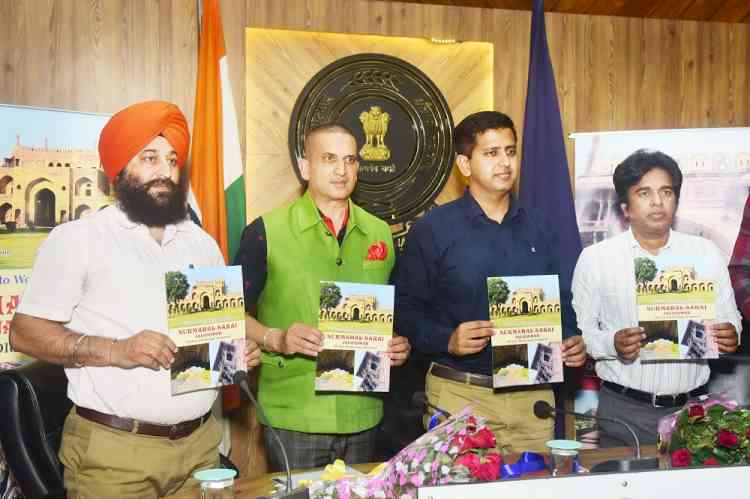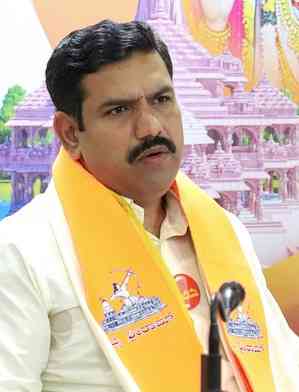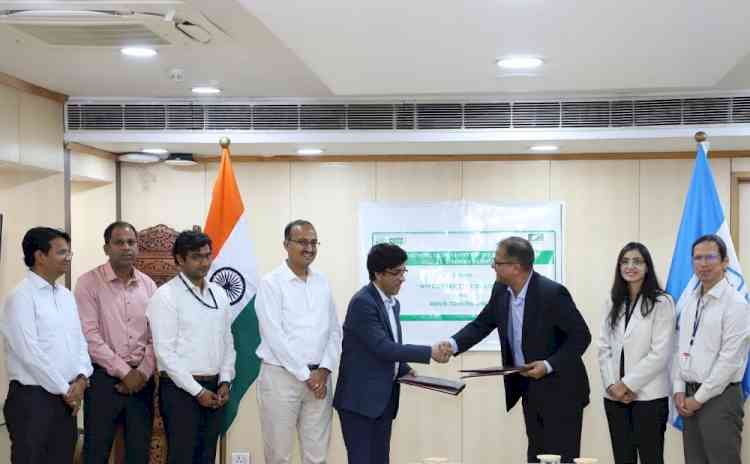Nauni varsity scientists bag Indo-UK collaborative project on oilseed research
Author(s): City Air NewsIn a major achievement, the scientists of Department of Plant Pathology at the Dr YS Parmar University of Horticulture and Forestry (UHF), have bagged an International collaborative project on developing cutting-edge...


In a major achievement, the scientists of Department of Plant Pathology at the Dr YS Parmar University of Horticulture and Forestry (UHF), have bagged an International collaborative project on developing cutting-edge technology for inducing biotic and abiotic stress tolerance in mustard rape for economic and environmental sustainability.
The project has been sanctioned under the prestigious NEWTON BHABHA Fund UK- India Pulses and Oilseed Research Initiative (PORI). The fund has been created by BBSRC of the Government of United Kingdom and the Department of Biotechnology, Ministry of Science and Technology, GoI.
The University will work with nine leading research organisations of the country besides seven renowned research institutes of United Kingdom in the project. The three-year project has a total budget outlay of more than Rs 7.27 crore as Indian component, which will be distributed to the 10 Indian institutes, which are part of the project. Each Indian institute will work on a different aspect of the project with a researcher working on the same area in the UK. BBSRC which is a part of UK Research and Innovation, a body which works in partnership with universities, research organisations and government for promoting research and innovation is also making upto £3.5 million available to support the UK components of this research.
Dr HR Gautam, Professor and Head of Department of Plant Pathology informed that Dr Anil Handa, Professor of Plant Pathology will be the Principal Investigator and coordinator of this project while Dr Rajnish Sharma working in the Department of Biotechnology will act as the Co-Investigator. He added that this achievement is one of the cherished moments in 55 years history of the department. Dr JN Sharma, UHF Director of Research, said that the University is making continuous efforts to get projects from various funding agencies and engage in collaborative work to strengthen the research capabilities and infrastructure.
India is one of the major producers and consumers of oilseeds crops in the world. The university scientists will work on ‘Genomics-led improvement of biotic and abiotic stress tolerance in mustard rape for economic and environmental sustainability’ by utilizing state-of-art advanced molecular approaches like CRISPER/Cas9 for mapping the genes conferring resistance to turnip mosaic virus (TuMV). The Plant Virology laboratory of the Department of Plant Pathology is an internationally acclaimed laboratory and has facilities for conducting molecular level research for determining the genetic diversity of TuMV in Northern India and developing a panel of Indian TuMV isolates for evaluating European and Indian sources of resistance.
Besides Dr YS Parmar University of Horticulture and Forestry, Nauni, the University of Delhi, South Campus; NIPGR, New Delhi; NBPGR, New Delhi; NRCPB, New Delhi; IARI, New Delhi; PAU, Ludhiana; CAZRI, Jodhpur; DRMR, Bharatpur and IIT Kharagpur will be a part of the project. The University of York, University of Hertfordshire, University of Warwick, University of Essex, Earlham Institute and Rothamsted Research will be the investigators from United Kingdom.
While congratulating the scientists, UHF Vice-Chancellor Dr HC Sharma said that the project will go a long way in using the latest techniques in biotechnology for disease management to increase productivity of oilseed crops. This project will also help train our students in using molecular markers for crop improvement.
Through this collaborative project, efforts are being made to encourage multi-institutional collaborations between UK and Indian researchers to undertake high-quality research aimed at increasing crop productivity, resilience, sustainability and quality of pulses and oilseeds grown for food or feed in India. Pulses and oilseeds are important crops in India. Pulses are relatively under-used crops in the UK, but are a major source of dietary protein in India. Oilseeds are grown in both countries and are a valuable source of oil for a variety of uses, as well as animal feed. This collaborative project aims to develop exploit genomic and bioinformatic resources to aid the development of improved varieties for sustainable crop production.

 cityairnews
cityairnews 
















